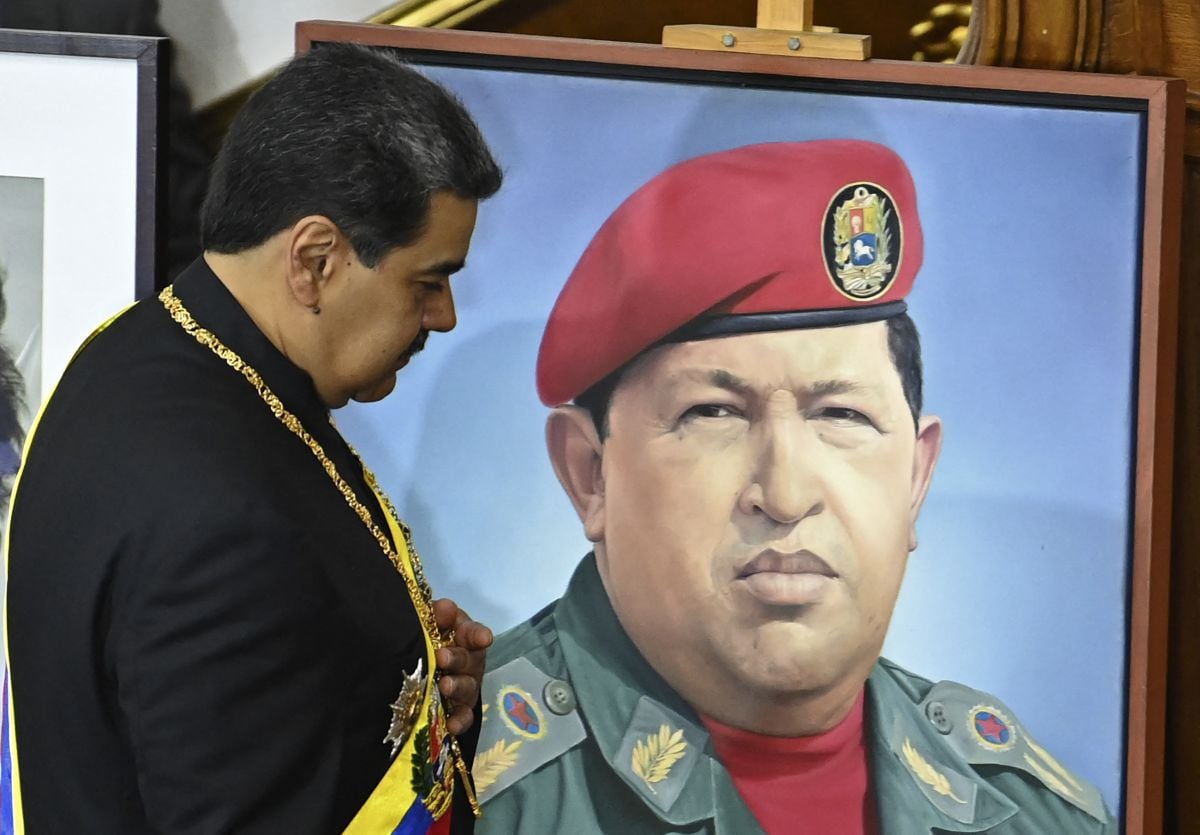
On March 5, 2013, the so-called Bolivarian revolution lost its founder, Hugo Chavezwho passed away that afternoon, after 13 years, one month and three days as president of Venezuela. The death of the socialist leader entailed other losses that the nation has been assuming in the last decade.
The country lost the international leadership inherited by Chávez, as the oil checkbook shrank, migration skyrocketed, and political instability became the norm, which increased the bill for the Government, which ended up sanctioned, accused of crimes against humanity and with questioned legitimacy.
The most positive point in all this mutation has been the reduction of insecurity, something that under Chávez was always the country’s biggest problem and that has been significantly reduced in recent years.
Among other changes, the transformation of Venezuela in the post-Chavez decade can be summarized in 10 keys:
1.- ECONOMIC CONTRACTION
Between 2014 and 2020, GDP experienced an unstoppable fall that reduced the size of the national economy by almost 80%, a scenario that began to reverse in 2021 but will take decades to recover the point of 2013, according to experts. Since Chávez’s death, half a million businesses have closed, most of them small and medium-sized, according to business reports.
2.- MASSIVE MIGRATION
The nation that welcomed millions of migrants for 60 years of wealth, began in 2013 to count thousands of Venezuelans who left their country. Until today, according to data collected by the United Nations, almost 7.2 million people left Venezuela overwhelmed by the crisis and in search of better economic opportunities.
3.- FINANCIAL SOLVENCY
In 2017, the country officially entered into default. From then on, the debt has grown, which has not been able to be restructured by the Government due, among other things, to international sanctions that restrict its ability to obtain financing abroad.
4.- INTERNATIONAL SANCTIONS
After numerous personal sanctions against Chavista leaders, the entire country began to suffer, on its own skin, these restrictions in 2019, when the US included the PDVSA oil company, the heart of the national economy, on its list. Since then, the financial power of the government has fallen to historic lows, although it has created an economy that circumvents these measures with the help of China, Russia and Iran, among others.
5.- POLITICAL SPACES
The weight that Chávez had on the world political scene has been decimated with Maduro, who gradually lost allies until he was surrounded and with ecosystems that were once beneficial to him, now critical of his management. The recent turn to the left in Latin America may be the opportunity to regain notoriety in spaces such as Unasur and Celac.
6.- FROM BENEFACTOR TO BENEFICIARY
Chávez’s Venezuela, with enormous resources, financed the development of dozens of countries that benefited from oil revenues and, in exchange, paid with political support for the Bolivarian revolution. The country governed by Maduro has received humanitarian aid since 2019, as it has millions of inhabitants in extreme poverty and in urgent need.
7.- SUBSIDIES VS NEOLIBERALISM
The subsidy architecture established by Chávez has been dismantled in the last five years, when gasoline ceased to be free, public transport fares multiplied and the prices of all products skyrocketed, many of them unaffordable for the majority of the population, and services, which present failures on a daily basis.
8.- WAGES AND INFLATION
When Chávez died, the minimum wage was 2,047.52 bolivars, equivalent to 326.03 dollars, according to the official rate of the Central Bank of Venezuela (BCV), which was beginning to be insufficient in the face of inflation that was around 50%.
With Maduro in power, inflation reached almost 200,000% and the monthly salary bottomed out in 2019, when it stood at one dollar. Today it is around 5 dollars a month with inflation that closed 2022 at 234%.
9.- WORLD CONNECTIVITY
In the post-Chávez decade, Venezuela went from nearly 400 international flights each week to fewer than 50 today, as it tries to recover from near-total paralysis. This disconnection with the world, intensified by the sanctions, is also evident in the restrictions to access markets or in the exclusion of global telephone systems, among others.
10.- INTERNATIONAL ACCEPTANCE
The siege against President Nicolás Maduro, whose legitimacy is questioned by some governments, as well as massive migration, ended up affecting Venezuelans who now must apply for visas to enter dozens of countries, which they previously received without any requirement other than a passport. to the once richest travelers in South America.
Source: EFE
Source: Gestion
Ricardo is a renowned author and journalist, known for his exceptional writing on top-news stories. He currently works as a writer at the 247 News Agency, where he is known for his ability to deliver breaking news and insightful analysis on the most pressing issues of the day.












